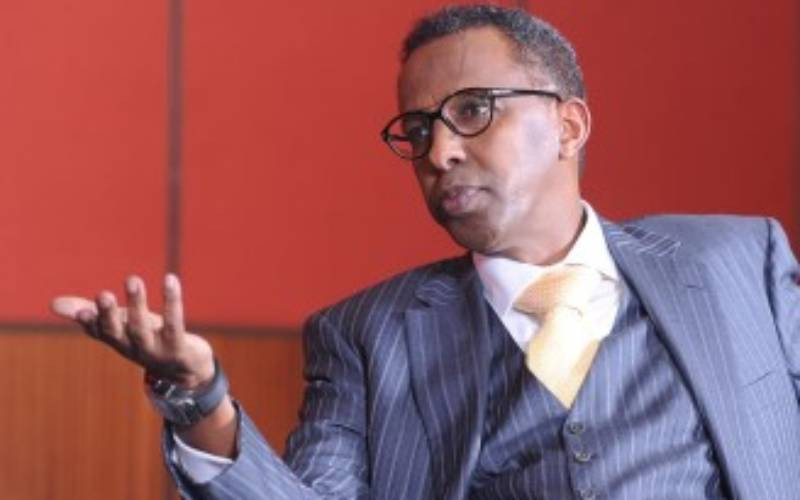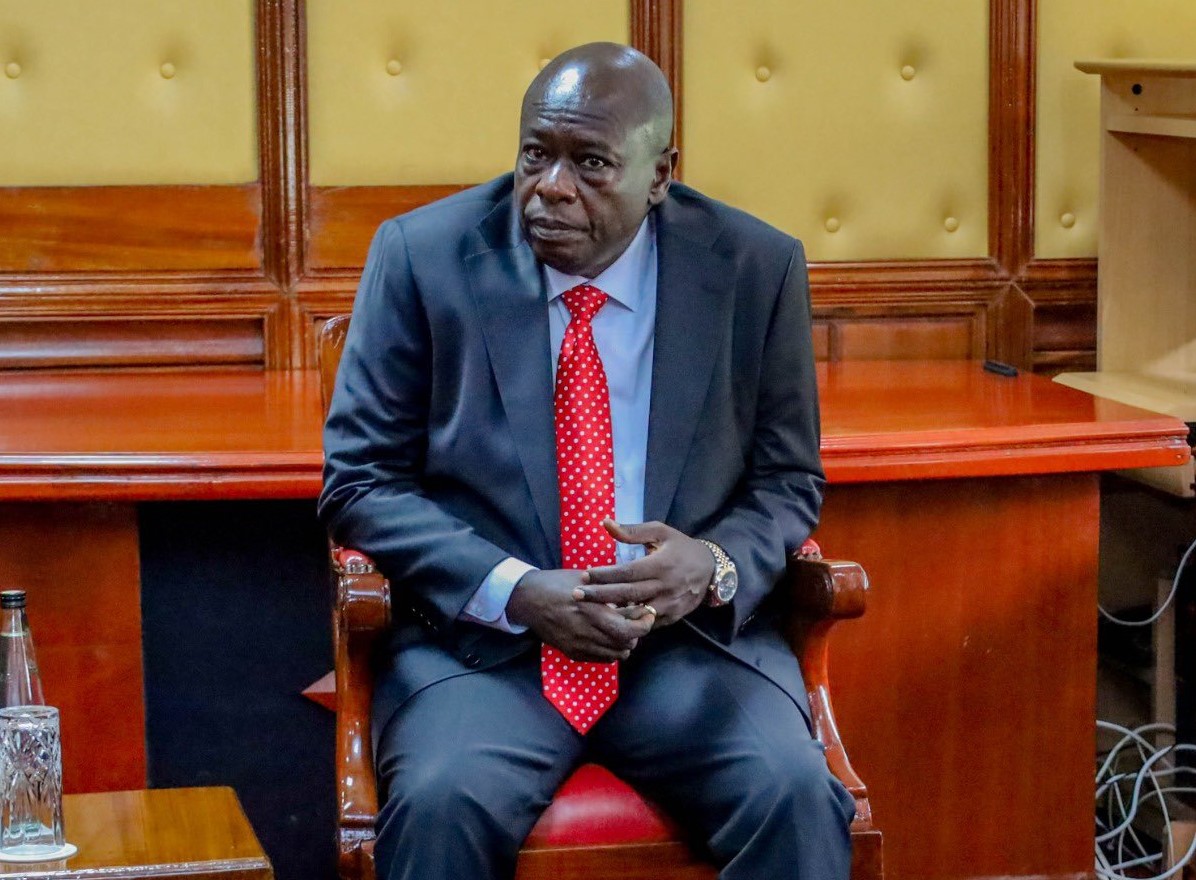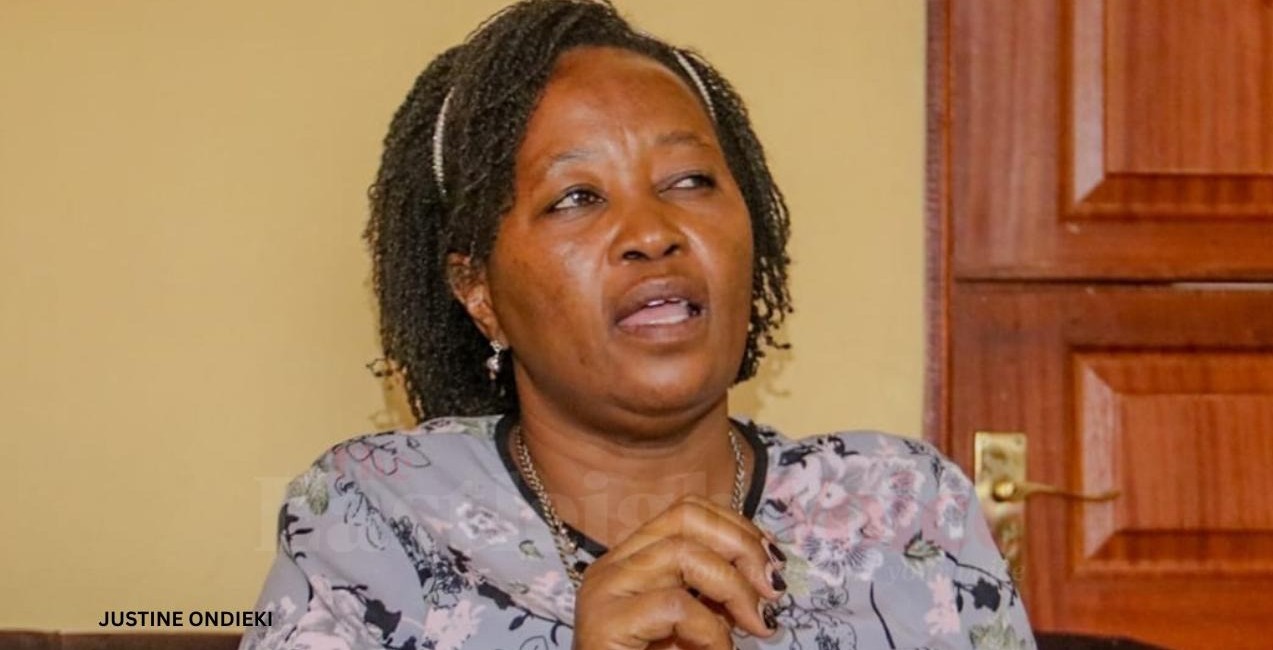Lawyer Ahmednasir Abdullahi threatens external petition against Supreme Court

The top court barred Ahmednasir, of Ahmednasir Abdullahi Advocates LLP, following his continued attacks on judges and the Judiciary - the court said he has "relentlessly and unabashedly... scandalized and ridiculed" it.
Senior Counsel Ahmednasir Abdullahi has threatened to file a petition at the East African Court of Justice after the Supreme Court permanently barred him and associates of his law firm from making submissions before the court.
The top court barred Ahmednasir, of Ahmednasir Abdullahi Advocates LLP, following his continued attacks on judges and the Judiciary - it said he has "relentlessly and unabashedly... scandalised and ridiculed" it.
The lawyer launched a scathing attack on Chief Justice Martha Koome Via X on Friday, saying he had instructed his lawyers to file a petition at the court in Arusha, Tanzania, to seek legal redress. He alleged corruption at the Supreme Court but Koome has denied these claims in the past.
More To Read
- Auditor General flags Judiciary for underutilising Sh520.4 million
- Petition to dissolve Parliament, Senate over gender rule forwarded to CJ Martha Koome
- Judiciary calls for budget increase, says Sh20 billion deficit crippling functions
- Judicial Council condemns police brutality, demands action on protest gangs
- Were Judiciary staff locked out by hackers seeking to stall IEBC appeal?
- Kenya's Supreme Court to begin six-week August recess
I have instructed my lawyers to file a petition in the East African Court of Justice at Arusha to seek legal redress against KOOME's judicial skulduggery and niggling shenanigans. I will not waste time in going to KOOME's CORRUPT COURT! @CJMarthaKoome @THE_SCOK pic.twitter.com/yxxnrXueSF
— Ahmednasir Abdullahi SC (@ahmednasirlaw) January 19, 2024
"Fair hearing"
In response to the Supreme Court's action, the Law Society of Kenya (LSK) and other parties in the legal fraternity weighed in on the matter.
LSK President Erick Theuri termed the move "illegal and a landmark example of abuse of power". He argued that the Supreme Court should have filed a case before the court, granting Ahmednasir the right to respond. Theuri said a hearing would follow and an appropriate ruling made.
"Ahmednasir was never given a fair hearing in accordance with article 47 of the constitution, and that is why that letter and its content is draconian and does not comply with the law principle of right to be heard. A basic element of any fair decision," the LSK president said. Article 47 (1) states, "Every person has the right to administrative action that is expeditious, efficient, lawful, reasonable and procedurally fair. The Court has no legal right to bar an advocate duly authorised by the Law Society to practice law."
Theuri added, "The decision has no basis in law, is illegal and irregular, and paints the Court as a purveyor of injustice. At a time when the Judiciary is in cross hairs the decision justifies the attacks on the Judiciary."
Legally, the law provides for Ahmednasir to appeal by submitting this action by the Supreme court to the High Court's judicial review. This is the exercise of the Court's inherent power at common law to determine whether an action is lawful or not in a word to uphold the rule of law.
"Above reproach, not criticism"
In his reaction to the developments, lawyer Eugene Wamalwa said on X, "Like Ceaser's wife, the Kenyan Judiciary should be above reproach, but not criticism. We may not agree with what Ahmednasir says but we must defend his constitutional right to say it and not to be condemned to such draconian punishment unheard, otherwise it could lead to judicial tyranny."
Siaya Governor and senior counsel James Orengo said, "Duale ordered for my arrest while making arguments for his recusal. I was on solid ground in my submissions. The ban on Ahmednasir SC by the Supreme Court is arbitrary. The remedy to be applied to expose falsehoods or lies is more free speech not enforced silence (Brandeis USSC)."
Defence Cabinet Secretary Aden Duale noted that "the Constitution of Kenya 2010, under article 33, provides for the freedom of expression, explicitly stating that every person has and shall enjoy this right. Ahmednasir, like any other Kenyan, is entitled to this and the Judiciary will not gag him in this day and age of our country, guided by Constitutionalism and the Rule of Law."
High Court lawyer Danstan Omari noted that only two out of the seven Supreme Court judges are tasked with administration - the Chief Justice as the president and the Deputy CJ.
"It is illegal and unconstitutional and was done outside the confines of the law. The Supreme Court never sits as an administration but as a supreme body in government to hear and determine cases presented before the seven-judge bench," Omari said. "The Supreme Court is a public institution and you cannot ban members of the public from going to public offices. The Supreme Court is setting a bad precedent because lower courts are bound by the decisions of the Supreme Court. They can only bar Ahmedasir from going to their residential homes."
The lawyer also noted that the Supreme Court should be aware of the fact that it can be criticised without resorting to actions that portray abuse of power.
The letter from the apex court stated, "Whilst the decision is bound to affect litigants who had already sought the senior counsel's legal services before the court, it is untenable that you would seek justice in the very institution and before the very judges whose reputation and integrity you never tire in assaulting".
Lawyers responding to the matter also argued that the top court's decision borders on denying Kenyans the right to choose a counsel of their choice to represent them. They expressed concern about the impact of this decision on the livelihoods of advocates working in Ahmednasir's firm, whom they say have been condemned without allegations.
Top Stories Today













































